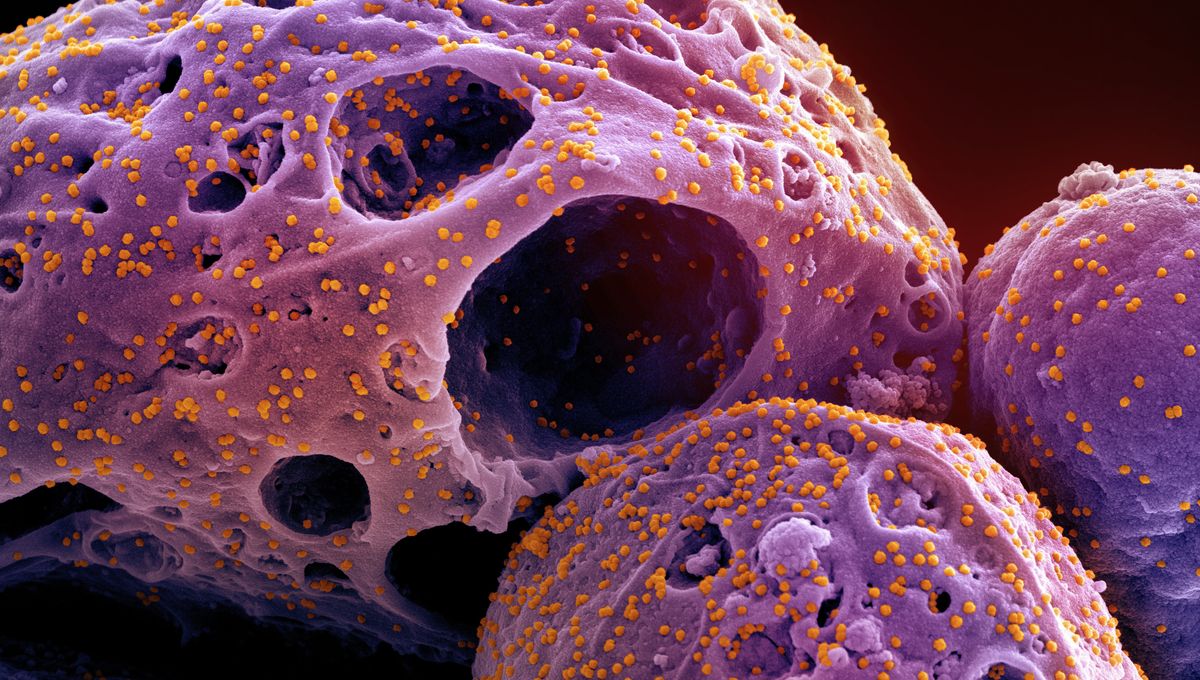
A newly developed vaccine against a group of viruses including SARS-CoV-2 is producing promising results in mice, part of the quest to develop a universal shot against all variants of these troublesome pathogens. Using nanoparticles containing various combinations of sections of viral proteins called receptor binding domains (RBDs), scientists have been able to produce antibody responses against several variants of SARS-CoV-2 and other viruses – and excitingly, they believe the right RBD mixture could also help shield against future coronaviruses that might emerge.
ADVERTISEMENT GO AD FREE
SARS-CoV-2 is part of a subgroup of viruses named the SARS-like betacoronaviruses, or sarbecoviruses for short. The original member of this group was the virus that caused the SARS (severe acute respiratory syndrome) outbreak of 2002-4. Despite fears of a potential global catastrophe, international public health efforts were able to bring the outbreak under control quickly. According to the World Health Organization (WHO), the death toll was 916, with a total of 8,422 cases across 29 countries.
Contrast this with the closely related SARS-CoV-2. In the five years since the COVID-19 pandemic began, the WHO has recorded over 777 million cases (as of January 19, 2025). We know the level of devastation a sarbecovirus can cause, and we’ve seen first-hand the vital importance of vaccination in curbing the spread and preventing deaths.
The vaccines that have been developed against SARS-CoV-2 are undoubtedly effective, but the virus has continued to throw the odd spanner into the works through the emergence of new variants. Ideally, you’d want a vaccine that offers broad protection, even when the virus starts to pick up mutations. This is the same issue that’s driving the development of various universal vaccine candidates for seasonal flu.
The authors of a new study are working on this problem – even taking it one step further with a vaccine platform that could offer not only protection against variants of SARS-CoV-2, but also future sarbecoviruses that could spill over from animals into humans.
They used a computational approach to design nanoparticles displaying a range of sarbecovirus RBDs. They then immunized mice with a range of different nanoparticles. Some of the mice had previously received existing COVID-19 vaccines, whereas some were immunologically naïve, meaning they hadn’t been exposed to a sarbecovirus before.
The different groups of mice received their initial shots as well as booster doses spaced out over a period of a few months, and blood samples were taken periodically to measure the antibody response against a range of variants.
ADVERTISEMENT GO AD FREE
Nanoparticles displaying two (mosaic-2COMs), five (mosaic-5COM), or seven (mosaic-7COM) different viral RBDs were compared. While mosaic-2COMs and mosaic-5COM were found to produce the highest antibody levels against some variants, on balance, the study concluded that mosaic-7COM was the most promising option: “mosaic-7COM elicited more potent responses against zoonotic sarbecoviruses and highly mutated Omicrons, supporting its use to protect against SARS-CoV-2 variants and zoonotic sarbecoviruses,” the authors wrote in the paper.
These results are limited to a mouse model for now, but the authors write that their results “support the integration of computational methods with vaccine design and the further evaluation of [these nanoparticles], particularly mosaic-7COM, as potential pan-sarbecovirus vaccines.”
When it comes to speculation about the next pandemic to hit humanity, there are lots of viruses vying for our attention – but it’s worth remembering that no one really saw COVID-19 coming. Having a vaccine ready to go that could protect against other viruses of the same ilk would stand the world in good stead if history ever were to repeat itself.
The study is published in the journal Cell.
Source Link: Nanoparticle Vaccine Could Protect Against Future COVID-19 Variants – Plus Other Coronaviruses